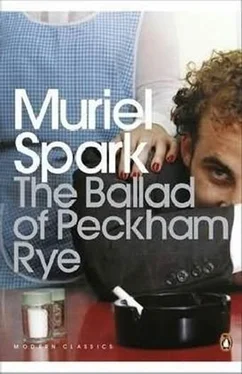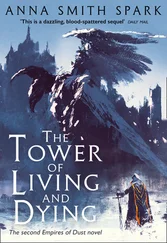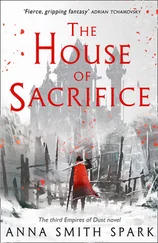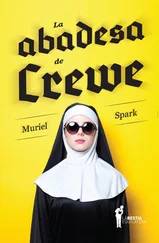Muriel Spark - The Ballad of Peckham Rye
Здесь есть возможность читать онлайн «Muriel Spark - The Ballad of Peckham Rye» весь текст электронной книги совершенно бесплатно (целиком полную версию без сокращений). В некоторых случаях можно слушать аудио, скачать через торрент в формате fb2 и присутствует краткое содержание. Жанр: Современная проза, на английском языке. Описание произведения, (предисловие) а так же отзывы посетителей доступны на портале библиотеки ЛибКат.
- Название:The Ballad of Peckham Rye
- Автор:
- Жанр:
- Год:неизвестен
- ISBN:нет данных
- Рейтинг книги:3 / 5. Голосов: 1
-
Избранное:Добавить в избранное
- Отзывы:
-
Ваша оценка:
- 60
- 1
- 2
- 3
- 4
- 5
The Ballad of Peckham Rye: краткое содержание, описание и аннотация
Предлагаем к чтению аннотацию, описание, краткое содержание или предисловие (зависит от того, что написал сам автор книги «The Ballad of Peckham Rye»). Если вы не нашли необходимую информацию о книге — напишите в комментариях, мы постараемся отыскать её.
The Ballad of Peckham Rye — читать онлайн бесплатно полную книгу (весь текст) целиком
Ниже представлен текст книги, разбитый по страницам. Система сохранения места последней прочитанной страницы, позволяет с удобством читать онлайн бесплатно книгу «The Ballad of Peckham Rye», без необходимости каждый раз заново искать на чём Вы остановились. Поставьте закладку, и сможете в любой момент перейти на страницу, на которой закончили чтение.
Интервал:
Закладка:

Muriel Spark
The Ballad of Peckham Rye
© 1960
Chapter 1
‘GET away from here, you dirty swine,’ she said.
‘There’s a dirty swine in every man,’ he said.
‘Showing your face round here again,’ she said.
‘Now, Mavis, now, Mavis,’ he said.
She was seen to slam the door in his face, and he to press the bell, and she to open the door again.
‘I want a word with Dixie,’ he said. ‘Now, Mavis, be reasonable.’
‘My daughter,’ Mavis said, ‘is not in.’ She slammed the door in his face.
All the same, he appeared to consider the encounter so far satisfactory. He got back into the little Fiat and drove away along the Grove and up to the Common where he parked outside the Rye Hotel. Here he lit a cigarette, got out, and entered the saloon bar.
Three men of retired age at the far end turned from the television and regarded him. One of them nudged his friend. A woman put her hand to her chin and turned to her companion with a look.
His name was Humphrey Place. He was that fellow that walked out on his wedding a few weeks ago. He walked across to the White Horse and drank one bitter. Next he visited the Morning Star and the Heaton Arms. He finished up at the Harbinger.
The pub door opened and Trevor Lomas walked in. Trevor was seen to approach Humphrey and hit him on the mouth. The barmaid said, ‘Outside, both of you.’
‘It wouldn’t have happened if Dougal Douglas hadn’t come here,’ a woman remarked.
He was standing at the altar with Trevor, the best man, behind him. Dixie came up the aisle on the arm of Arthur Crewe, her stepfather. There must have been thirty-odd guests in the church. Arthur Crewe was reported in the papers next day as having said: ‘I had a feeling the wedding wouldn’t come off.’ At the time he stepped up the aisle with Dixie, tall in her flounces, her eyes dark and open, and with a very little trace round the nose of a cold.
She had said, ‘Keep away from me. You’ll catch my cold, Humphrey. It’s bad enough me having a cold for the wedding.’
But he said, 'I want to catch your cold. I like to think of the germs hopping from you to me.’
‘I know where you got all these disgusting ideas from. You got them from Dougal Douglas. Well, I’m glad he’s gone and there won’t be him at the wedding to worry about in case he starts showing off the lumps on his head or something.’
‘I liked Dougal,’ Humphrey said.
Here they were, kneeling at the altar. The vicar was reading from the prayer book. Dixie took a lacy handkerchief from her sleeve and gently patted her nose. Humphrey noticed the whiff of scent which came from the handkerchief.
The vicar said to Humphrey, ‘Wilt thou have this woman to thy wedded wife?’
‘No,’ Humphrey said, ‘to be quite frank I won’t.’
He got to his feet and walked straight up the aisle. The guests in the pews rustled as if they were all women. Humphrey got to the door, into his Fiat, and drove off by himself to Folkestone. It was there they had planned to spend their honeymoon.
He drove past the Rye, down Rye Lane roundabout to Lewisham, past the Dutch House and on to Swanley, past Wrotham Hill and along the A20 to Ditton, where he stopped for a drink. After Maidstone he got through the Ashford by-pass and stopped again at a pub. He drove on to Folkestone, turning left at the Motel Lympne, where yellow headlamps of the French cars began to appear on the road as they had done before. He stayed in the hotel on the front in the double room booked for the honeymoon, and paid double without supplying explanations to the peering, muttering management.
‘Outside,’ said the barmaid. Humphrey rose, finished his drink with a flourish, regarded his handsome hit face in the mirror behind the barmaid, and followed Trevor Lomas out into the autumn evening, while a woman behind them in the pub remarked, ‘It wouldn’t have happened if Dougal Douglas hadn’t come here.’
Trevor prepared for a fight, but Humphrey made no move to retaliate; he turned up towards the Rye where his car was parked and where, beside it, Trevor had left his motor-scooter.
Trevor Lomas caught him up. ‘And you can keep away from round here,’ he said.
Humphrey stopped. He said, ‘You after Dixie?’
‘What’s that to you?’
Humphrey hit him. Trevor hit back. There was a fight. Two courting couples returning from the dusky scope of the Rye’s broad lyrical acres stepped to the opposite pavement, leant on the railings by the swimming baths, and watched. Eventually the fighters, each having suffered equal damage to different features of the, face, were parted by onlookers to save the intervention of the police.
After Humphrey had been sent away from the door, and the matter had been discussed, Dixie Morse, aged seventeen, daughter of the first G.I. bride to have departed from Peckham and returned, stood in her little room on the upper floor of 12 Rye Grove and scrutinized her savings book. As she counted she exercised her pretty hips, jerking them from side to side to the rhythm of ‘Pickin’ a Chicken’, which tune she hummed.
Her mother came up the stairs. Dixie dosed the book and said to her mother through the dosed door, ‘Quite definitely I’m not taking up with him again. I got my self-respect to think of.’
‘Quite right,’ Mavis replied from the other room.
‘He wasn’t ever the same after he took up with Dougal Douglas,’ Dixie said through the wall.
‘I liked Dougal,’ Mavis replied.
‘I didn’t like him. Trevor didn’t like him,’ Dixie said. Hearing the front-door bell, Dixie stood attentively. Her mother went down and said something to her stepfather. They were arguing as to who should go and answer the door. Dixie went out on the landing and saw her stepbrother Leslie walking along the ground-floor passage in the wrong direction.
‘Leslie, open that door,’ Dixie said.
The boy looked up at Dixie. The bell rang again. Dixie’s mother burst out of the dim-lit sitting-room.
‘If it’s him again I’ll give him something to remember me by,’ she said, and opened the door. ‘Oh, Trevor, it’s you, Trevor,’ she said.
‘Good evening, Mavis,’ Trevor said.
Dixie returned rapidly to her room to comb her black. hair and put on lipstick. When she came down to the sitting-room, Trevor was seated under the standard lamp, between Mavis and her stepfather, waiting for the television play to come to an end. Trevor had a strip of plaster on his face, dose to the mouth.
The play came to an end. Mavis rose in her quick way and switched on the central light. Her husband, Arthur Crewe, smiled at everyone, adjusted his coat and offered Trevor a cigarette. Dixie set one leg across the other, and watched the toe of her shoe, which she wriggled.
‘You’ll never guess who came to the door this evening.
‘Humphrey Place,’ said Trevor.
‘You’ve seen him?’
‘Seen him – I’ve just knocked his head off.’
Dixie’s stepfather switched off the television altogether, and pulled round his chair to face Trevor.
‘I suppose,’ he said, ‘you did right.’
‘Did right,’ said Dixie.
‘I said did. I didn’t say done. Keep your hair on, girl.’ Mavis opened the door and called, ‘Leslie, put the kettle on.’ She returned with her quick little steps to her chair. ‘You could have knocked me over,’ she said. ‘I was just giving Dixie her tea; it was, I should say, twenty past five and there was a ring at the bell. I said to Dixie, “Whoever can that be?” So I went to the door, and lo and behold there he was on the doorstep. He said, “Hallo, Mavis,” he said. I said, “You just hop it, you.” He said, “Can I see Dixie?” I said, “You certainly can’t,” I said. I said, “You’re a dirty swine. You remove yourself,” I said, “and don’t show your face again,” I said. He said, “Come on, Mavis.” I said, “Mrs Crewe to you,” and I shut the door in his face.’ She turned to Dixie and said, ‘What about making a cup of tea?’
Читать дальшеИнтервал:
Закладка:
Похожие книги на «The Ballad of Peckham Rye»
Представляем Вашему вниманию похожие книги на «The Ballad of Peckham Rye» списком для выбора. Мы отобрали схожую по названию и смыслу литературу в надежде предоставить читателям больше вариантов отыскать новые, интересные, ещё непрочитанные произведения.
Обсуждение, отзывы о книге «The Ballad of Peckham Rye» и просто собственные мнения читателей. Оставьте ваши комментарии, напишите, что Вы думаете о произведении, его смысле или главных героях. Укажите что конкретно понравилось, а что нет, и почему Вы так считаете.
